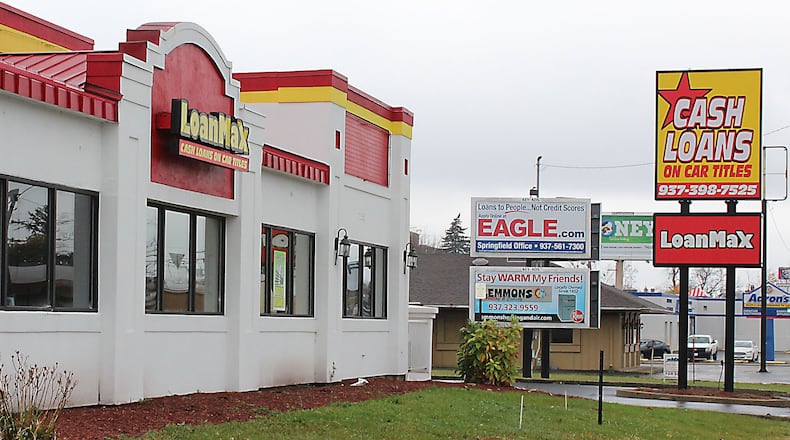RELATED: Church leaders: Payday loans hurt Springfield
“I’m happy Springfield has taken the lead on this,” Ruby said. “We were really the first city that started organizing and pulling faith leaders together. That’s exciting to me.”
However, the industry won’t go down without a fight, Ruby said. “There will be lots of pushback,” he said.
Industry leaders told the News-Sun last month that proposed changes won’t work for payday lenders in Ohio.
“Our businesses can’t operate under that kind of model,” said Pat Crowley, a spokesman for the Ohio Consumer Lenders Association.
Crowley said his industry charges fees, not interest rates, and said their services help people pay medical bills and buy groceries, or “everyday things that people need to survive.”
One in 10 adults in Ohio, or about 1 million people, have taken out a payday loan, according to a study released last month by the Pew Charitable Trusts, a national consumer protection organization. The national average is 1 out of every 20 people who have used a payday loan, Ruby said.
SOCIAL MEDIA: FOLLOW REPORTER MICHAEL COOPER ON FACEBOOK
“Ohio is kind of a poster state,” he said. “We have the least regulations and the highest per capita loan usage.”
Ruby is asking that rates are fair for borrowers and viable for lenders who operate in good faith, allow reasonable time for repayments and require installment payments of no more than five percent of their monthly income. The proposed legislation will also cover car title and online loans, he said.
Last year, Ruby organized a community forum on payday lending, which included local and state leaders. Springfield has at least 18 loan centers, Ruby said, many clustered together in poorer neighborhoods. Ohio has more than 650 storefronts that offer payday loans, the Pew report says.
MORE: Springfield pastors, state lawmakers look to reform payday lending
Voters approved tougher regulations on the industry, including a 28-percent interest rate ceiling as part of the state’s 2008 Short Term Loan Act. But the report says many businesses have skirted those regulations by operating as credit service organizations, which do not have fee limits.
Fees charged by the payday and car title loan industry cost Ohioans more than $500 million a year, mostly affecting residents who are already struggling financially, according to a Center for Responsible Lending report released in 2015.
In Ohio, it costs about $680 to borrow $300 for five months, the Pew report says. In Colorado, residents would pay $172.
It typically takes about one-third of a person’s income to pay back a loan each month in Ohio, Ruby said.
FIVE QUICK SPRINGFIELD READS
Unmatched coverage
The Springfield News-Sun provides complete coverage of issues that affect jobs and the economy in Springfield, including recent stories on gas prices and store closings at the Upper Valley Mall.
By the numbers
$500 million: Fees charged by the payday and car title loan industry in Ohio per year.
$185 million: Fees charged to Ohio residents by payday loan lenders last year.
650: Estimated storefronts in Ohio that offer payday loans.
About the Author
